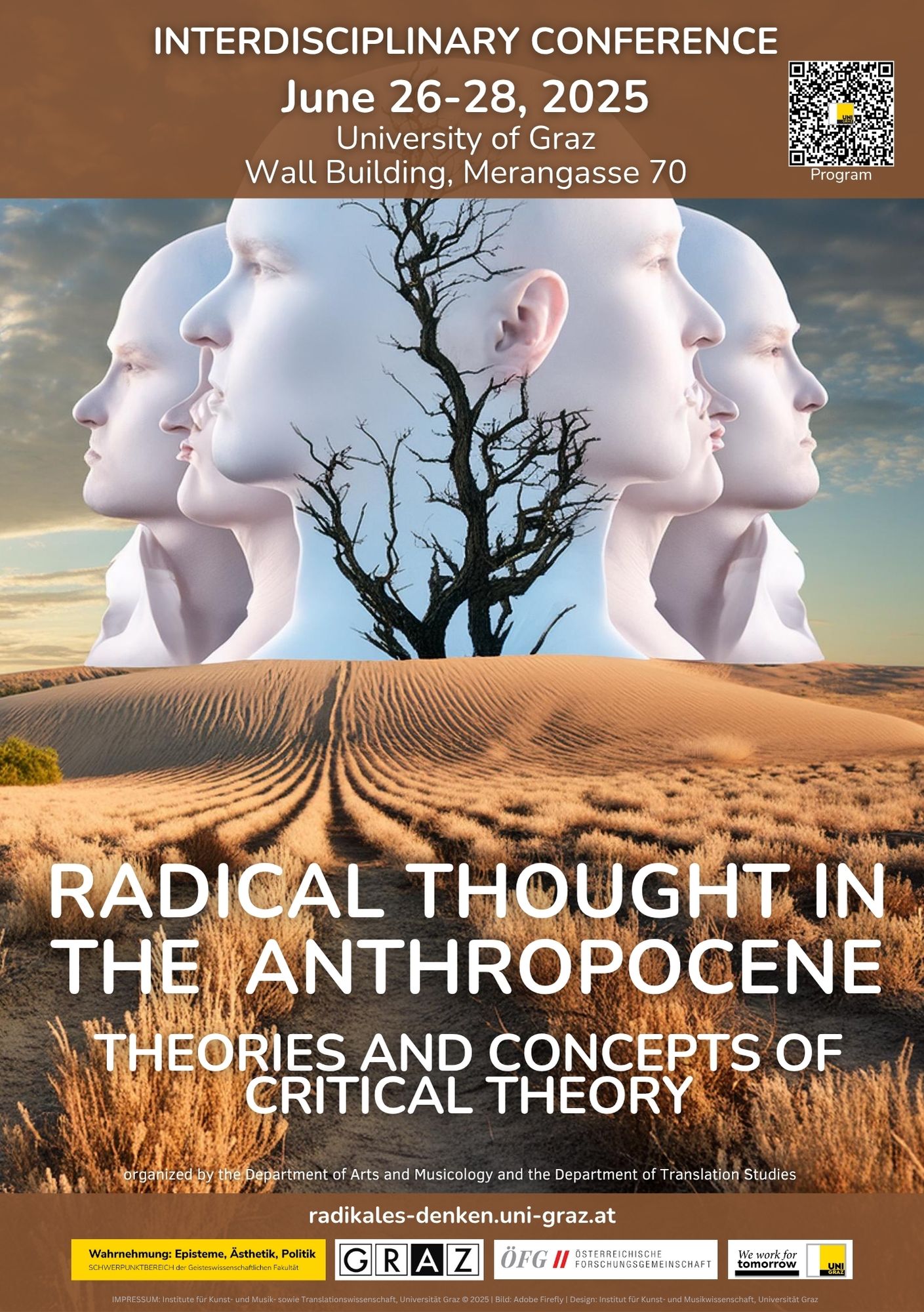Program schedule
Any information about the topics of the workshop, the speakers and the exact schedule
The conference was organised in a workshop format, with 20-minute presentations followed by a 10-minute discussion.
The following three corresponding topics have been assigned to submitted abstracts.
In this workshop, various forms and concepts of critique and communication will be juxtaposed and analysed with regard to their viability in the face of current social challenges such as multiculturalism, multilingualism, migration and modern communication technologies. Among other things, the culture- and language-specific reception of the first generation of the Frankfurt School is analysed in terms of its historicity, topicality and with regard to its "afterlife". In this context, particular attention is paid to the critique of technology and ideology. Other relevant categories in this context include phenomena such as inter- and transculturality, deconstruction and text, medialisation and multimodality, globalisation and culture as well as gender-specific issues.
The question of the (artistic) "material" is one of the core questions associated with Theodor. W. Adorno's aesthetic theory. It is also of central importance with regard to the current reception of critical theory. With the question of the significance, nature and conceptualisation of the material, not only the Marxist roots of Critical Theory are put up for discussion, but also its concrete political and practical relevance. In this workshop, philosophy and social science criticism as well as (historical) materialism and (neo-)idealism will be weighed up against each other. Of particular interest here is the relationship between new materialisms and critical theory. Other relevant topics include (world) literature, digitalisation and mediatisation, art and (ideological) freedom as well as (artistic) activism and politics.
The relationship between science and critique will be discussed in this workshop, with the question of the role of the humanities for critical thinking and future-changing practice forming a central, self-reflective and critical focus. Among other things, it will be discussed how science can reflect on the concepts, theories and arguments of critical theory and thus make them fruitful for a better life, for a radical "wild thinking" that generates different references to reality, art worlds and sometimes even anarchisms. Dichotomous thinking, post- and transhumanism as well as anthropology and history are further possible topics. The relationship between critique and (un)reason as well as critique,
outrage and resistance will also be put up for discussion.
As part of the International Conference "Radical Thouhgt in the Anthropocene", Coralie Fargeat’s provocative sci-fi short Reality+ (2014) will be shown at Cinema Geidorf (Geidorfplatz 1a, 8010 Graz) on Friday, June 27, from 4:00 to 5:30 PM. Admission is free, and a podium discussion will follow the screening. Partipicants of the panel discussion will be Antonia Hofstätter (University of Warwick), Guilherme Maia De Oliveira Wood, Saptarshi Mallick, Susanne Kogler (all University of Graz), presentation: Stefan Baumgarten (University of Graz).
Set in a slick, hyper-modern Paris of the near future, Reality+ explores a world where people can install neural implants that let them - and others - see themselves as their most idealized selves. Vincent, the film’s central figure, embraces this technology wholeheartedly, especially after meeting fellow user Stella. But the system’s 12-hour daily limit begins to blur the line between desire and delusion, forcing both characters to confront the emotional fallout of augmented identity.
With sharp visuals and biting social commentary, the film tackles issues of body image, self-perception, and the growing pressure to curate our appearances - both online and off. In the age of digital enhancement and biotech dreams, Reality+ poses a timely question: What happens when the ideal self replaces the real one?
The post-screening discussion will delve into the broader implications of these themes, especially in the context of the Anthropocene, where technology, identity, and ecological crisis intersect in increasingly radical ways. All are welcome to join the conversation.
Conference venue
The Symposium 2025 will take place in room MR 33.0.010 in the Wall University Centre, Merangasse 70, 8010 Graz.
